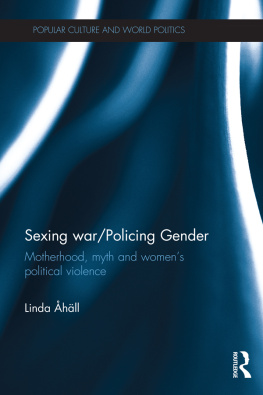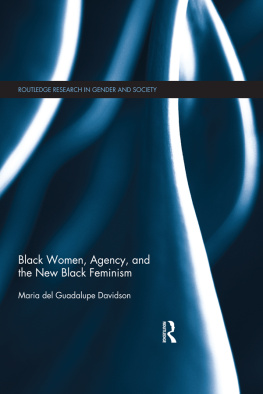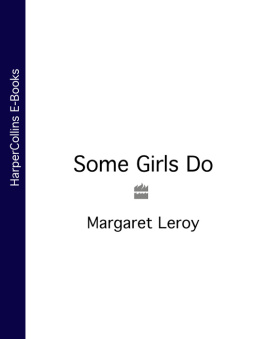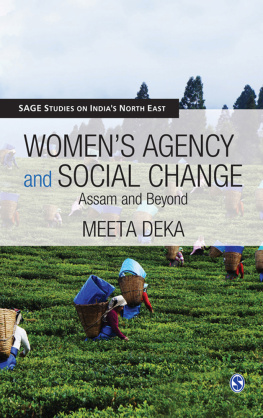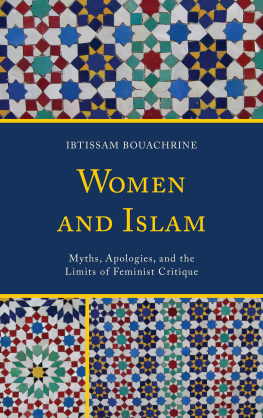BOOK FORTY-THREE
Louann Atkins Temple Women & Culture Series
Books about women and families, and their changing role in society
How to Suppress Womens Writing
Joanna Russ
With a new foreword by
JESSA CRISPIN

UNIVERSITY OF TEXAS PRESS
AUSTIN
The Louann Atkins Temple Women & Culture Series is supported by Allison, Doug, Taylor, and Andy Bacon; Margaret, Lawrence, Will, John, and Annie Temple; Larry Temple; The Temple-Inland Foundation; and the National Endowment for the Humanities.
Grateful acknowledgment is made to W. W. Norton and Company for permission to reprint lines from a poem by Adrienne Rich, originally published in her Poems: Selected and New, 19501974.
Copyright 1983 by Joanna Russ
New edition 2018 by the University of Texas Press
Foreword to the new edition 2018 by Jessa Crispin
All rights reserved
Requests for permission to reproduce material from this work should be sent to:
Permissions
University of Texas Press
P.O. Box 7819
Austin, TX 78713-7819
utpress.utexas.edu/rp-form
Names: Russ, Joanna, 19372011, author. | Crispin, Jessa, writer of supplementary textual content.
Title: How to suppress womens writing / Joanna Russ ; with a new foreword by Jessa Crispin.
Description: New edition. | Austin : University of Texas Press, 2018. | Includes bibliographical references and index.
Identifiers: LCCN 2017048972
ISBN 978-1-4773-1625-2 (pbk. : alk. paper)
ISBN 978-1-4773-1628-3 (library e-book)
ISBN 978-1-4773-1629-0 (nonlibrary e-book)
Subjects: LCSH: Women authors, EnglishHistory and criticism. | Women authors, AmericanHistory and criticism. | Women in literatureHistory and criticism. | AuthorshipSex differences. | Censorship.
Classification: LCC PN471 .R87 2018 | DDC 809/.89287dc23
LC record available at https://lccn.loc.gov/2017048972
doi:10.7560/316252
This book is dedicated to my students.
Contents
by Jessa Crispin
Foreword
JESSA CRISPIN
I have a vision. The streets of Midtown Manhattan are filled with professors, professional critics, editors, and literary award judges. They are all dressed in their ill-fitting suitsthey could afford better tailoring but that, of course, would indicate to their audience that something like beauty is importantyet they are tearing them off to replace them with sackcloth. They are on their knees, they are decorating themselves in ashes.
Slowly they crawl out of their blue glass skyscrapers, their suburban commuter rail stations, their off-campus housing to join the mass. Its not a howl that you hear but a low, unceasing moan. A few, the more dramatic and in need of attention, flog themselves with branches and nylon rope. All of these men, all of these white men, every man who ever told a publishing assistant at a party while pinning her to the wall, You know I am in an open marriage, every man who ever used the word histrionic to describe a womans memoir or articulate to describe a black mans performance or who spent two paragraphs speculating about the body of a trans writer in what was supposed to be a review of their work, every professor who uses Kanye lyrics in a lecture to show he is with it but who teaches an all-white syllabus, every man who has referred to a Bront or Emily Dickinson or James Baldwin as a minor writer: they are all here.
They have come to atone. They have come to ask for absolution. They have been forced into an encounter with their unconscious, they have finally seen the truth of their biasthe need they have had to believe that anyone not of their demographic was a charlatan or a boreand they have been laid low by this information.
The sidewalks are crowded with all those whom they have dismissed and betrayed: everyone who has been marginalized and written out of the history of literature. They are interested in the spectacle, but skeptical. They have seen this type of performance before, this display of How could I have been so wrong?, which was then followed up either by a return to previous behavior with slight modifications or an attempt to get laid. But they are transfixed by the sight, and they find themselves disappointed that they are still capable of hope: hope that finally they will be seen for their true selves and not through these mens projections.
When the men finally reach the water, they toss their clothes onto the bonfires that have been burning all night. The stench of burning polyester fills the air. Forgive us, they cry, as they hand over their positions to the spectators and write letters of resignation. We didnt realize.
Reading Joanna Russs How to Suppress Womens Writing, I wondered, what the hell is it going to take? For decades we have had these types of critiques; we have had books and lectures and personal essays and statistics and scientific studies about unconscious bias. And yet, still, we have critics like Jonathan Franzen speculating on whether Edith Whartons physical beauty (or lack of it, according to his assessment of her face and body) affected her writing; we have a literary culture that is still dominated by one small segment of the population; and we have a sense that every significant contribution to the world of letters was made by the heterosexual white man, a sense that is reinforced in the education system, in the history books, and in the visible world.
This complaint wasnt even exactly fresh when Russ wrote her book, which I do not say to diminish her accomplishment. It is always an act of bravery to stand up to say these things and risk being thought of as ungrateful. Your small pile of crumbs can always get smaller.
But what is it going to take to break apart these rigidities? Russs book is a formidable attempt. It is angry without being self-righteous, it is thorough without being exhausting, and it is serious without being devoid of a sense of humor. But it was published over thirty years ago, in 1983, and theres not an enormous difference between the world she describes and the world we inhabit.
Sure, there have been some improvements. The ratios of bylines with regard to sex and race have improved, but that was mostly due to persistent online campaigns of shaming rather than any sort of editorial revelation. The unconscious assumptions that create our expectations for women writers or black writers or gay writers often remain the same. If you look beyond the numbers and into content, youll see that white men are still the expertsstill the objective and universal voice of reason. Black writers are often only asked to write about black issues or urban issues or sports or music. Women are often only asked to write about their feelings or work/life balance or domestic issues. Gay writers are asked to write about identity politics or sexuality. And so on. (But while we are at it, we are still mostly only hearing from white men who want to provide the objective and universal voice of reason, not all of the weirdos and gender noncomformists and mystics and those marginalized by something other than sex or race, and I long for their presence in the conversation, too.)
And so I ask, again and again and again, what is it going to take to have a full reconsideration of how literature has been dominated by one small worldview, to see how our ideas of greatness are affected by our own need to see our selves, our gender, our nation as great, and to see radical plurality as this exciting, beautiful thing, and not a threat to your tiny little self?
Russ did not write like a woman, so its not clear what to do with her. She did not write about domestic or interior spaces; her writing is neither pretty nor diplomatic. As a nonfiction writer and critic, particularly in both this work and the remarkable
Next page



